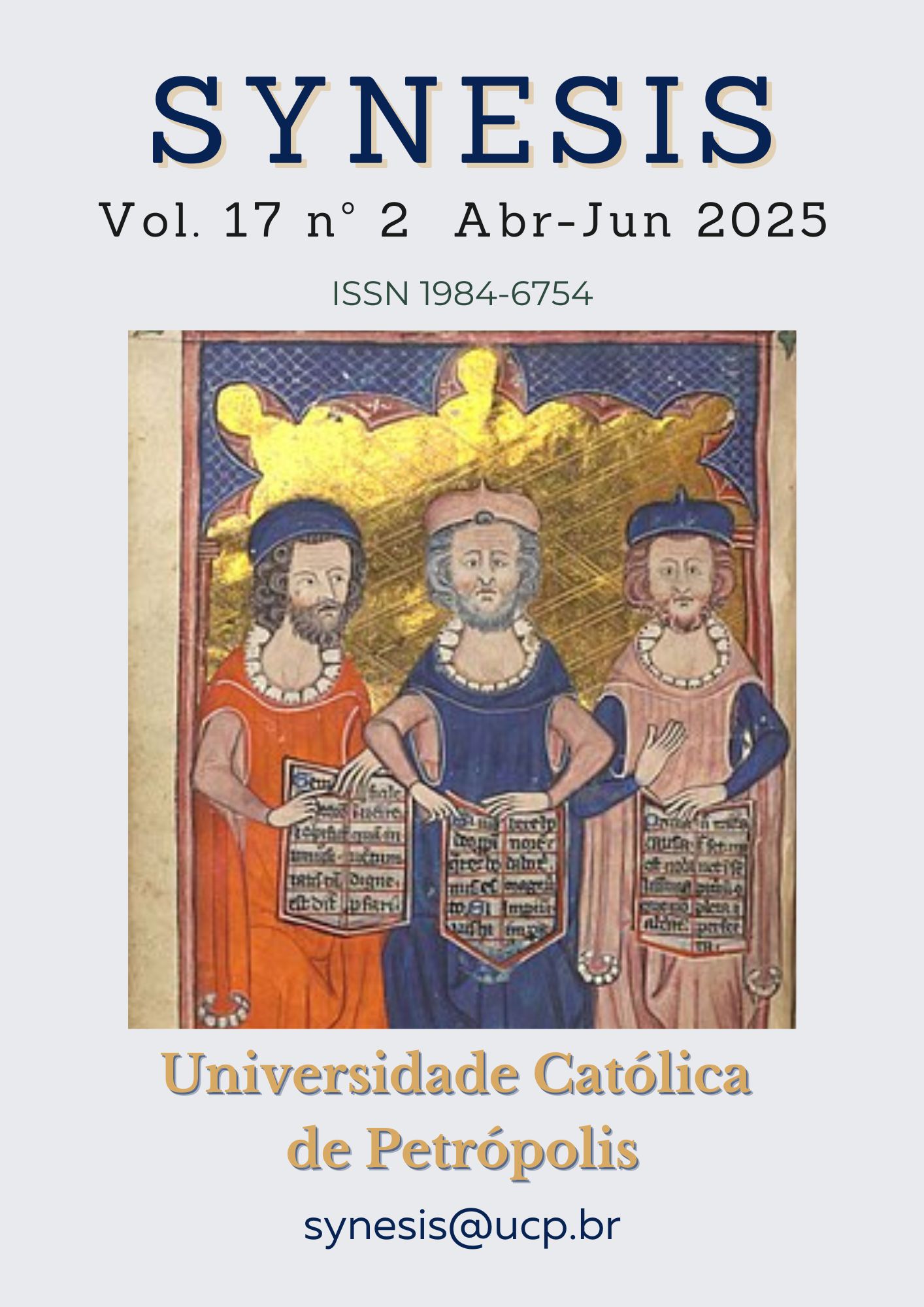Resumo
Albert Camus foi o último filósofo típico do movimento existencialista do século XX. O tema central do existencialismo de Camus é aprofundar a vida interior humana através de duas categorias: absurdo e rebelião. Ao examinar esses dois princípios interligados, Camus discute as aspirações do indivíduo moderno por liberdade, autoexpressão e ruptura com as normas sociais. Para Camus, o caminho para a existência genuína é rebelar-se, ou seja, ser contra o absurdo, afirmar a identidade pessoal e o valor dentro da sociedade. Este artigo se concentra na análise do sujeito existencialista em dois aspectos: a consciência do absurdo da vida e a rebelião contra o absurdo.
Referências
Alain, R. G. (1997). Pour un Nouveau Roman (Le Phong Tuyet trans., Vietnamese). Hanoi: Writers Association Publishing House.
Alberes, R. M. (2021). L'aventure intellectuelle du XXe siècle; panorama des littératures européennes, 1900–1959 [The intellectual adventure of the twentieth century: a panorama of European literature] (Vu Dinh Luu trans.,Vietnamese). Hanoi: Labor Publishing House.
Arinze, A. T., & Onwuatuegwu, I. N. (2020). The Notion of Absurdity and Meaning of Life in Albert Camus Existentialism. Open Journal of Philosophy, 10, 528-538. https://doi.org/10.4236/ojpp.2020.104037
Bloom, H. (Ed.). (2009). Albert Camus. Infobase Publishing.
Bui, N. D. (2023). Albert Camus and philosophical literature. In Journal of literature, 07 (2023), p. 6-19.
Carroll, D. (2007). Albert Camus the Algerian: Colonialism, Terrorism, Justice. Columbia University Press.
Cohn, R. G. (1986). "The True Camus". The French Review. 60 (1): 30–38
Do, D. H. (2018). Existentialist literary criticism. Hanoi: Literature Publishing House.
Do M. H. (2006), Panorama of Modern Western Philosphy, Hanoi Publishing.
Dinh, N. T., Doan, C., Tran, Q. T. (Eds.) (2019). Modern Western Philosophy Textbook. Hochiminh City: Ho Chi Minh City General Publishing House.
Nguyen, T. D. (2006). Existentialism: History and its Presence in Vietnam. Ho Chi Minh City: Ho Chi Minh City General Publishing House.
Tran, T. D. (1968), Introduction to Philosphy, Ra Khơi Publishing, Saigon 10.
Tran, T. D. (2005), Existentialist Philosphy, Literature Publishing.
Alberl Camus, (1955). The myth of Sisyphus and other essays ( J. O’Brien, Trans.). Random House.
Alberl Camus, (1956). The Rebel. New York: Vintage Books.
Alberl Camus, (1979). The Myth of Sisyphus. New York: Penguin Books,
Alberl Camus, (1989). Stranger. Vintage International.
Alberl Camus, (1967). The plague ; translated by Stuart Gilbert. Hutchinson.
Alberl Camus (2005). The Myth of Sisyphus, Penguin Group, London.
Albert Camus (1968), The Rebel (translated into Vietnamese by Bui Giang), Võ Tánh Publishing, Saigon.
Albert Camus (1973), The Stranger, (translated into Vietnamese by Le Thanh Hoang Ngan and Mai Vi Phuc), Youth Publishing.
Albert Camus (2002), The Plague, (translated into Vietnamese and introduced by Nguyen Trong Dinh), Literature Publishing.
Albert Camus (2005), The Myth of Sysiphus, Penguin Group, London.
Albert Camus, L’Homme révolté, Paris 1951. Dt.: Albert Camus, Der Mensch in der Revolte. Essays, Reinbek 1969 (zuerst 1953).
Foley, John (2008). Albert Camus: From the Absurd to Revolt. McGill-Queen's University Press.
Marx, K., (1856). Speech at the Anniversary of the People’s Paper. In Schmidt, A. (1962). The concept of nature in Marx. Retrieve from http://pinguet.free.fr/schmidt1962.pdf, 14, March, 2024.
M. Kaluza, and P. Francev, 2020, Brill’s Companion to Camus: Camus among the Philosophers, Leiden: Brill.
Kałuża, M., Francev, P., & Sharpe, M. (2019). Camus as Philosopher amongst Philosophers. In Brill's Companion to Camus (pp. 1-28). Brill.
Nguyen, H. H. (2022). Modern Western philosophical theories. Hanoi: Cultural Information Publishing House.
Nguyen, T.Q. & Do, T. (2024). Metaphysics of loneliness in Dostoevsky’s view of life: essence and issues posed. Synesis, v. 16, n. 1, 2024, pp.582-600. https://seer.ucp.br/seer/index.php/synesis/article/view/2994/3762.
Igbafen, M. L. (2009). "The existentialist philosophy of Albert Camus and Africa’s liberation". Kaygı. Uludağ Üniversitesi Fen-Edebiyat Fakültesi Felsefe Dergisi, 13, pp. 9-20. https://acikerisim.uludag.edu.tr/items/a261842d-772f-49ef-b7c4-bcc3fe60e997
Jean Paul Sartre (1965), Explaining the “L”Etranger, Literature Journal no. 2.
Solomon, Robert, 2006, Grim Thoughts: Experience and Reflection in Camus and Sartre, New York: Oxford University Press.
Sprintzen, David & Van den Hoven, Adrian (eds.), 2004, Sartre and Camus: A Historic Confrontation, Amherst: Humanity Books.
Zaretsky, R. (2020). Etiqueta: Social Philosophy.

Este trabalho está licenciado sob uma licença Creative Commons Attribution-NonCommercial-NoDerivatives 4.0 International License.
Copyright (c) 2025 Synesis (ISSN 1984-6754)
